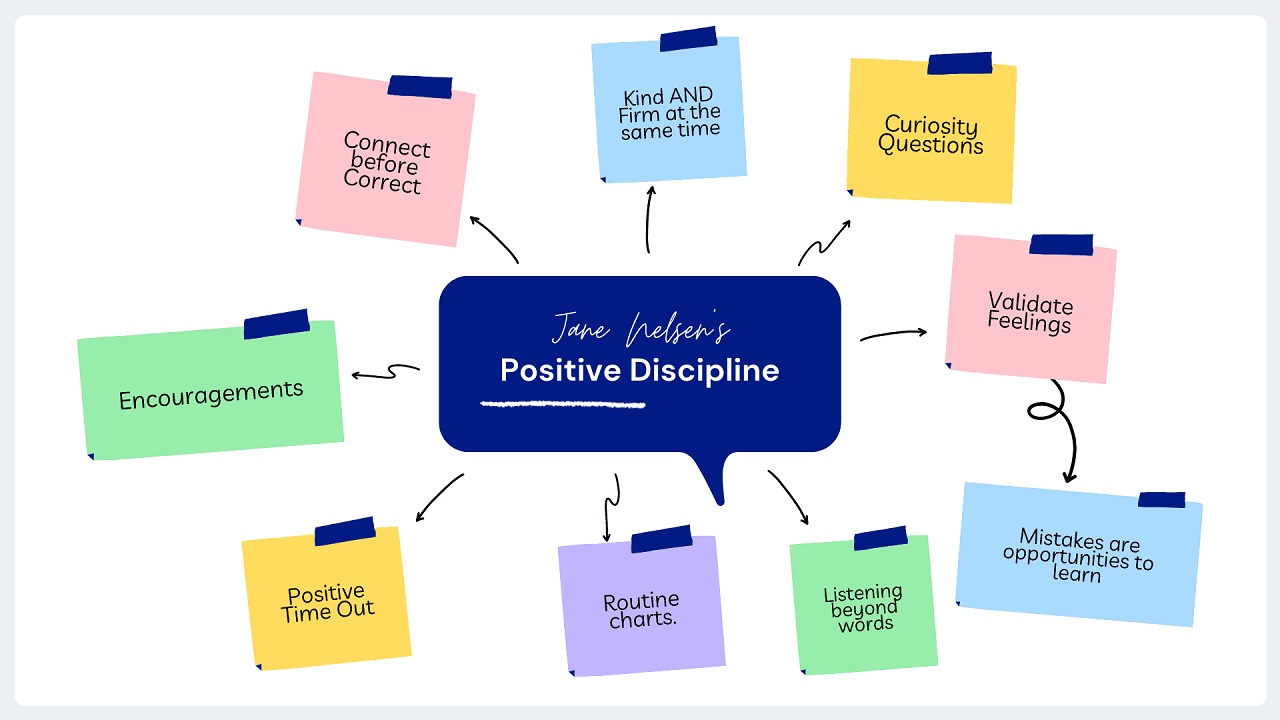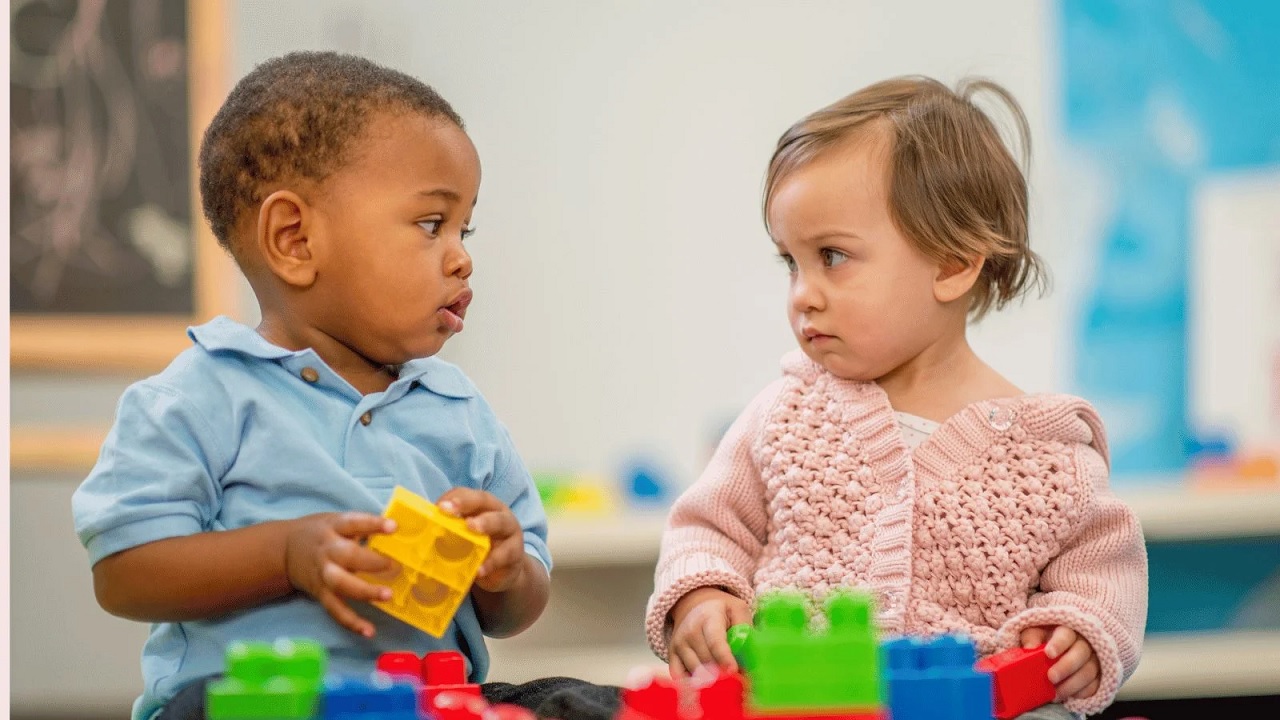Welcome to a world of love and learning, where Parenting Skills play a crucial role in Building Strong Relationships between parents and children. As a parent, you have the power to create a nurturing and positive environment that fosters trust and understanding.
By mastering essential Parenting Skills, you can strengthen the bond with your little ones, making every moment a joyful and meaningful experience.
Let’s embark on this incredible journey together, exploring the keys to effective parenting with love, patience, and guidance. Together, we’ll discover the true essence of parenthood, empowering both you and your child to grow and thrive.
Communication Skills

Parenting skills are vital for effective communication, fostering strong parent-child relationships, and understanding children’s needs and feelings. As a parent, developing excellent communication skills is essential.
Active listening is the foundation of healthy communication. When your child speaks, give them your full attention, maintain eye contact, and respond with empathy. This approach helps your child feel valued and encourages them to express themselves openly.
For instance, when your child shares their emotions, responding with phrases like, “I understand how you feel, and moreover, I’m here to support you” reinforces your presence and understanding.
Using positive language is another essential aspect of effective communication in parenting. “supportive”, “encouraging” and “praise” come into play here. Instead of saying “Don’t do that,” try providing guidance in a positive manner. For instance, if your child is running indoors, you could say, “Let’s walk slowly and be safe inside.”
Non-verbal communication, such as facial expressions and body language, also plays a significant role in understanding your child. Smile and nod when your child shares something positive, or offer a comforting hug when they are upset.
By actively listening, using positive language, and being aware of non-verbal signals, you can create a warm and open atmosphere where your child feels valued and understood. These Parenting Skills form the basis of strong parent-child relationships, laying the groundwork for a lifetime of love and effective communication between you and your little one.
Positive Discipline Techniques

Positive discipline techniques are crucial parenting skills that foster a loving and supportive environment for children to grow and learn. Using these techniques, parents can guide their children’s behavior in a constructive way, helping them understand the consequences of their actions while building a strong parent-child relationship.
Setting clear and age-appropriate boundaries is a crucial positive discipline technique. By clearly communicating rules and reasons, parenting skills aid in developing a sense of responsibility and understanding in children.
When your child misbehaves, using consequences instead of punishments is an effective approach. For instance, if your child forgets to clean up their toys, a logical consequence could be not having access to their favorite toy until they tidy up.
Positive reinforcement is a powerful tool to encourage good behavior. When your child displays positive behavior, acknowledge and praise them. Celebrate their efforts, which reinforces their inclination towards desirable actions.
Time-outs are often used in parenting, but offering alternatives is equally important. Instead of traditional time-outs, offer your child an alternative like taking a deep breath together to calm down or encouraging them to express their feelings through words.
By setting clear boundaries, using consequences rather than punishments, offering positive reinforcement, and providing alternatives to traditional methods, parents can build a strong foundation for their child’s emotional and behavioral development.
Remember, effective discipline is not about controlling or punishing the child but guiding them towards self-discipline and personal growth.
Emotional Intelligence and Empowerment

Parenting skills that focus on nurturing emotional intelligence and empowerment in children are essential for their overall well-being and success.
Emotional intelligence refers to the ability to recognize, understand, and manage one’s emotions effectively, as well as empathize with others. It lays the foundation for building strong relationships and coping with life’s challenges.
Parents play a significant role in teaching emotional intelligence to their children. Encourage your child to identify and express their feelings openly. Listen actively when they share their emotions, and validate their experiences by saying, “I understand how you feel.”
Another crucial aspect is empowering children to embrace their emotions without judgment. Let your child know that it’s okay to feel sad, angry, or happy, and help them develop healthy ways to cope with these emotions.
Building resilience is also a part of emotional empowerment. Moreover, Teach your child that setbacks are a natural part of life, and help them see challenges as opportunities for growth and learning.
Encourage self-awareness by asking questions like, “How does that make you feel?” or “Why do you think you reacted that way?” This helps children understand their emotions better and fosters self-reflection.
By teaching empathy, self-awareness, and resilience, parents can equip their children with the tools they need to navigate the complexities of life with confidence and self-acceptance. Empowering children to embrace and express their emotions sets the stage for a more emotionally balanced and fulfilling life ahead.
Building Trust and Connection

Building trust and connection is a fundamental aspect of guardianship skills that forms the basis of a strong and loving relationship between parents and children.
Firstly, being a reliable and consistent presence in your child’s life is key to establishing trust. Show up for them consistently, whether it’s attending their school events or being there when they need someone to talk to. This helps your child feel secure and valued, knowing they can always count on you.
Additionally, open and honest communication plays a crucial role in building trust. Encourage your child to share their thoughts and feelings without fear of judgment. Listen actively and respond with understanding and empathy. This fosters a safe space where your child feels heard and supported.
Moreover, creating family rituals and traditions can strengthen the bond between parents and children. Engage in activities together, such as family dinners, game nights, or outings. These shared experiences build lasting memories and a sense of togetherness.
Lastly, practicing forgiveness and understanding is vital in building trust and connection. Acknowledge that everyone makes mistakes, including parents, and model the behavior of apologizing and making amends when necessary. This teaches your child the value of empathy and compassion.
Being reliable and communicative, creating family rituals, and showing forgiveness are all essential elements in fostering a strong parent-child relationship. By prioritizing trust and connection, parents can create a nurturing environment where children feel loved, understood, and supported as they navigate through life’s journey.
Stress Management for Parents

Parenting skills include stress management, an important aspect that allows parents to take care of themselves while nurturing their children.
First and foremost, recognizing the signs of stress is crucial for parents. As parents, it’s essential to pay attention to feelings of overwhelm, irritability, or fatigue, and identify when stress levels are rising.
Next, seeking support is vital in stress management. Additionally, Parents should reach out to friends, family, or support groups to share their feelings and seek advice when needed. Talking about their stress can provide a much-needed release and perspective.
Moreover, self-care plays a significant role in stress management for parents. Active voice sentences like “prioritize” and “make time for” can convey this idea. Parents should prioritize activities that bring them joy and relaxation, whether it’s reading a book, taking a walk, or enjoying a hobby. Making time for themselves is essential to recharge and handle stress more effectively.
Additionally, learning and applying relaxation techniques can help parents cope with stress. Furthermore, Practicing deep breathing exercises, meditation, or yoga can calm the mind and body, reducing stress levels.
By recognizing stress, seeking support, prioritizing self-care, and learning relaxation techniques, parents can better care for themselves while being present and nurturing their children. Remember, taking care of your well-being ultimately benefits both parents and their children, fostering a healthy and harmonious family environment.
Setting a Positive Example

Guardianship skills encompass setting a positive example for children, as parents serve as role models and influential figures in their lives.
First and foremost, parents can demonstrate values and ethics through their actions. For instance, showing kindness and respect towards others, including family members, friends, and strangers, teaches children the importance of treating everyone with dignity.
Additionally, cultivating healthy relationships with others is essential in setting a positive example. Furthermore, Parents can model effective communication, conflict resolution, and empathy in their interactions with others, which helps children learn how to build and maintain positive relationships.
Moreover, practicing self-care and work-life balance is crucial in setting a positive example. Parents should prioritize taking care of their physical and emotional well-being, as it teaches children the importance of self-nurturing and maintaining a healthy balance between work and personal life.
Furthermore, parents can encourage a love for learning and curiosity. Additionally, by engaging in learning activities and pursuing hobbies, parents inspire their children to be curious about the world around them and to embrace lifelong learning.
By demonstrating values, cultivating healthy relationships, prioritizing self-care and work-life balance, and encouraging curiosity and learning, parents can be influential role models for their children.
Remember, children observe and learn from their parents, and by setting a positive example, parents can help shape their children into compassionate, responsible, and well-rounded individuals.
Problem-Solving and Conflict Resolution

Parenting skills encompass teaching children problem-solving and conflict-resolution abilities, essential for navigating life’s challenges with confidence and empathy.
Firstly, parents can teach problem-solving skills by encouraging children to identify the issue at hand. When a problem arises, parents can help their children articulate the problem clearly to gain a better understanding of the situation.
Moreover, parents can guide their children in brainstorming possible solutions. Additionally, by offering suggestions and involving children in the process, parents promote critical thinking and creativity.
Furthermore, parents can encourage their children to evaluate each solution’s potential outcomes. By asking questions like “What might happen if you choose this solution?” parents help their children develop foresight and consider the consequences of their actions.
Additionally, parents should help children implement the chosen solution and reflect on the results. Next children will learn from the experience, whether their solution was successful or not, and develop resilience and adaptability.
Moreover, By helping children identify problems, brainstorm solutions, evaluate outcomes, and reflect on results, parents equip their children with the tools to navigate conflicts with empathy and understanding.
Remember, nurturing problem-solving abilities from an early age sets the stage for confident and compassionate individuals who can tackle obstacles with resilience and creativity.
Balancing Discipline and Affection

Parenting skills encompass finding the right balance between discipline and affection and creating a nurturing environment where children feel loved, supported, and guided.
First and foremost, setting clear and consistent boundaries is essential for effective discipline. Children need to understand the rules and expectations, which helps create a sense of structure and security.
Moreover, parents can use positive reinforcement and praise to encourage desired behavior. Additionally, acknowledging and celebrating their achievements and efforts motivate children to continue making positive choices.
Furthermore, when discipline is necessary, parents should use consequences rather than punishments. By explaining the consequences of their actions, children understand the connection between their behavior and the outcomes.
Additionally, parents should balance discipline with affection. However expressing love, and hugs, and spending quality time together builds a strong emotional bond between parents and children.
By setting clear boundaries, using positive reinforcement, and explaining consequences, parents create a structured and supportive environment. Remember, combining discipline with affection fosters a loving and respectful parent-child relationship, allowing children to grow into confident and emotionally secure individuals.
Digital Guardianship Skills

In today’s digital age, parenting skills extend beyond the physical world to encompass guiding children’s online activities and promoting responsible digital citizenship.
First and foremost, parents should educate themselves about digital platforms and potential risks. Understanding social media, online gaming, and other digital tools allow parents to better monitor and support their children’s online experiences.
Moreover, setting clear guidelines for screen time is essential. Additionally, Parents should establish appropriate time limits and ensure that screen time does not interfere with other important activities, such as homework or physical play.
Furthermore, teaching digital literacy and internet safety is a critical aspect of digital parenting. By explaining the importance of protecting personal information and being cautious about interacting with strangers online, parents empower children to make safe choices.
Additionally, parents should lead by example in their own digital habits. Furthermore Demonstrating responsible internet use and being mindful of screen time themselves sets a positive model for children to follow.
Parents ensure a safe digital environment by educating themselves, setting guidelines, teaching digital literacy, and being positive role models.
Remember, with proper digital guardianship skills, children can embrace technology positively while staying protected in the online world.
Encouraging Lifelong Learning and Curiosity

Parenting expertise encompasses fostering a love for lifelong learning and curiosity in children, laying the foundation for a fulfilling and intellectually stimulating life.
First and foremost, parents can encourage a love for learning by exposing their children to diverse experiences and opportunities. Taking children to museums, libraries, and cultural events sparks their curiosity about the world around them.
Moreover, engaging in educational activities as a family is a great way to promote lifelong learning. Additionally Playing educational games, doing science experiments, and reading together create a positive learning environment at home.
Furthermore, parents should support their children’s interests and passions. Whether it’s art, sports, or music, nurturing these interests encourages children to explore and learn more about their chosen subjects.
Additionally, asking questions and encouraging curiosity help children become active learners. Furthermore, When children ask questions, parents can engage in meaningful discussions and further fuel their curiosity.
Through effective parenting skills, parents nurture a lifelong love for learning in children by exposing them to diverse experiences, supporting their interests, and encouraging curiosity. With the right encouragement and support, children can develop a thirst for knowledge and a passion for exploring the wonders of the world around them.
Conclusion
In conclusion, mastering essential parenting skills is the key to building strong and loving relationships with our children. Creating a nurturing environment by active listening, positive discipline, nurturing emotional intelligence, and setting positive examples for children.
Through effective communication and problem-solving, we teach them vital life skills that empower them to navigate challenges with confidence and resilience.
I encourage you to share your thoughts and experiences in the comments below. Let’s continue this wonderful journey of parenthood together, exchanging valuable insights and supporting one another.
Share this valuable information with your friends and family so that we can all contribute to fostering a generation of emotionally secure, confident, and compassionate individuals.
Together, we can make a positive impact on the lives of our children and build even stronger parent-child relationships. Thank you for being part of this amazing community of parents!















































